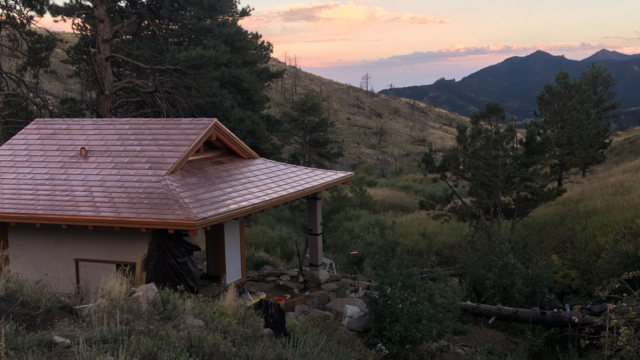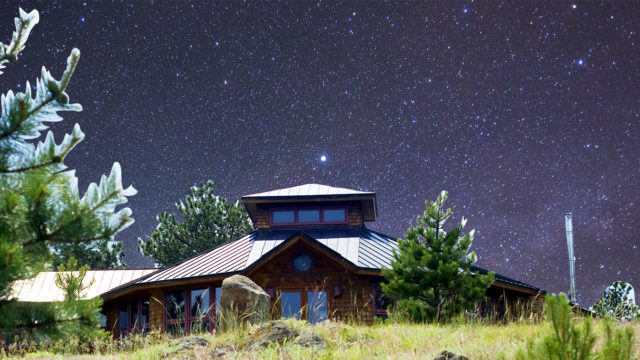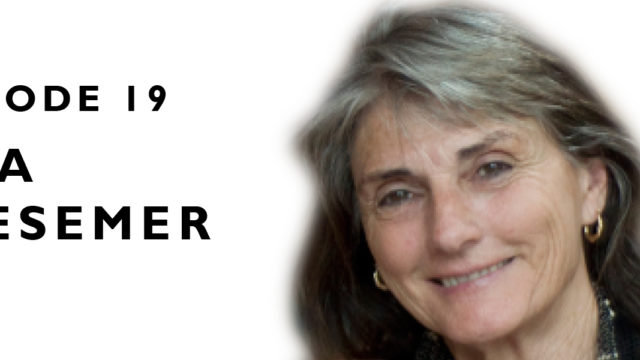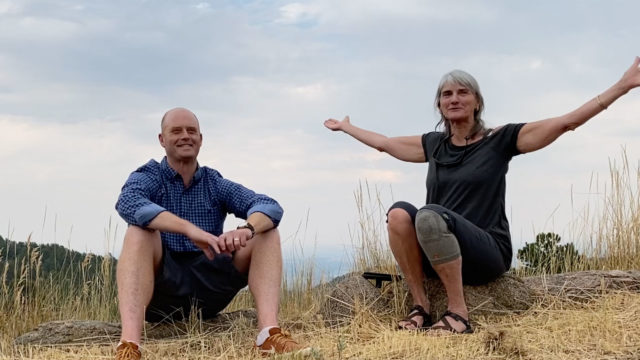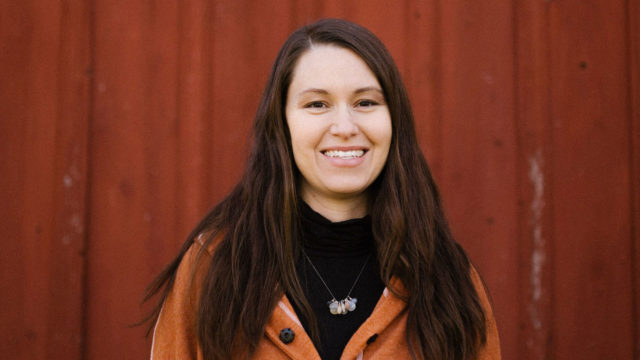Rabbi Zalman Schachter-Shalomi, or Reb Zalman, a Hasidic master and ordained Sufi Sheikh who began making waves in the U.S. in the 1960s moved to Boulder in 1996 at age 72 to hold the World Wisdom Chair at Naropa University, a position he held until his death in 2014.
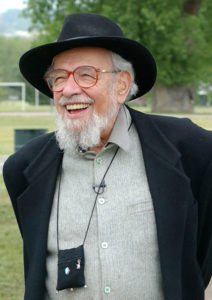
The school already knew Zalman from when he taught at one of its early summer sessions in the 1970s, and he had developed a reputation as a forward-thinking spiritual leader.
Naropa’s World Wisdom Chair was created with the intent to always have a spiritual leader walking among its students, and the chair’s first and previous holder was Dzigar Kongtrul Rinpoche.
At the time, Reb Zalman reportedly felt pigeon-holed where he lived in Philadelphia. He had launched the Jewish Renewal Movement, a movement which reintroduced ancient traditions of mysticism back into Judaism and incorporated a modern lens of transpersonal psychology as well as meditation, gender equality and ecstatic prayer.
However, the movement began to swallow him and he wanted to teach and mentor people from a wider scope than just Judaism, according Netanel Miles-Yepez, a close student of Zalman’s and a Jewish professor in the Department of Religious Studies at Naropa University. (Netanel currently occupies the lower level of Zalman’s South Boulder home, came to Boulder in 1998 to study with the rabbi. Zalman’s widow also still lives there.).
When he was invited to work with Naropa, Zalman, according to accounts, felt Boulder’s open and expansive energy resonated spiritually with him, and at Naropa, he taught classes like Rituals for People Helpers, Issues in Spiritual Direction, Judaism as a Civilization and Hasidic Masters. Zalman’s Wednesday World Wisdom lectures would pack up to 300 people in Naropa’s auditoriums.
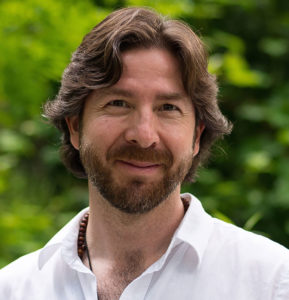
Zalman’s multifaceted approach to the practice of worship and seeking divine truth prized curiosity over rigid traditions. Those who have worked with him describe him as very grandfatherly, open to young people and new ideas — which gave him some reputation of being a “hippie rabbi.”
Rather than dismissing questions from his students or other points of view he couldn’t answer, he’d take them on himself and find out.
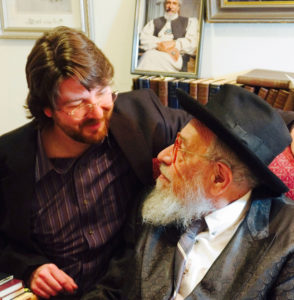
“I say I was the luckiest boy in the world because I got my own Obi-Wan Kenobi,” says Netanel, who studied with Zalman from 1998 up until his death in 2014 and remains his only Sufi initiate. “I traveled with him and had that kind of relationship you find in the classical stories. I was 26 and he was an old man, this grandfatherly-type of spiritual elder.”
Netanel tells BLDRfly that his reputation as a “hippie rabbi” stemmed largely from the population that flocked to him, and his willingness to peel back the layers of what interested his students.
Along with teaching from a transdenominational perspective, he also continued to visit and nurture Boulder’s Jewish congregations and community.
The Jewish Renewal Movement had a strong influence on Boulder. Along with having influenced the Reform and Conservative synagogues and their leaders, two of Reb Zalman’s initiates founded Jewish Renewal congregations here, including Rabbi Tirzah Firestone, founder of Boulder’s Congregation Nevei Kodesh, and many others went on to open other synagogues whose practices reflect the movement’s (and Reb Zalman’s) influence.
Zalman’s spiritual path
Born in Poland in 1924, Reb Zalman fled Hitler with his family and arrived in America in 1941, where he came an ordained rabbi of the Chabad-Lubavitch movement, a branch of Hasidism that began as a revival movement in 18th-century Russia.
However, his exposure to other belief systems led Zalman to divert from his strict Hasidic roots and inspired him to start the international movement in the heart of Philadelphia.
Along the way, he befriended psychedelic guru Timothy Leary at the start of the Bay Area’s counterculture revolution, tried LSD, taught as a professor of Mysticism and Psychology of Religion and became an ordained as a Sufi Sheikh. Seeing many parallels between Jewish mysticism and other forms of worship and study and soon realized that “all forms of religion are masks that the divine wears to communicate with us.”
Zalman’s connection to Sufism — an Islamic set of beliefs which seek truth through direct personal experience of God — began in the Bay Area where he first connected with the young Sufis who followed a Universalist Sufism brought to the west by a musician named Hazrat Inayat Khan.
In 1975, Zalman became ordained as a Sufi Sheikh when he and his friend, Pir Vilayat Inayat Khan, son of Hazrat, did ritual initiations for one another into each other’s faiths. Though Zalman sought only to become an initiate, Pir Vilayat “recognized the master sitting in front of him,” Netanel recounts to BLDRfly, “and made Zalman a Sheikh,” — a Sufi authorized to teach, initiate and guide aspiring students.
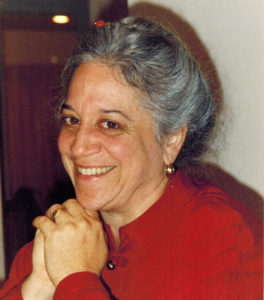
Even his house became a pilgrimage spot for spiritual leaders of all traditions. His widow, Eve Ilsen, recalls how the community came together in 1999 to add a complete floor to their house so that she and Zalman could continue to live there despite the constant flow of people.
“Zalman’s domain was downstairs. There was a whole finished ground level floor with an office and a large library,” she tells BLDRfly. “People would know the door was left unlocked. They’d come in, take their shoes off and head right downstairs.”
“I can’t imagine what the neighbors must’ve thought,” laughs Natenel, “seeing Sufi sheiks in green robes and Tibetan monks walking to the doors.”

Jewish Renewal Movement + Boulder
Boulder makes home for approximately 13,000 Jewish households — only 3 percent less than those residing in Denver, according to the 2018-2019 Greater Denver Jewish Study, updated in February of 2020
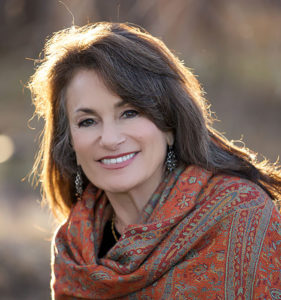
Many of the 80 rabbis Reb Zalman ordained went on to found congregations within Boulder’s Jewish community, like Nevei Kodesh and Gunbarrel’s Pardes Levavot. Nevei Kodesh’s Rabbi Tirzah Firestone actually got initiated by Reb Zalman and founded the synagogue in 1992 before Zalman even moved to Boulder.
In Tirzah’s opinion, all of Boulder’s Jewish services and congregations across the board have benefited from Reb Zalman’s influence.
“You might find moments of silence, meditation and contemplation,” she says. “From different kinds of God-language, personal ways of addressing God, to more diverse kinds of music punctuating our prayer. And of course, more mystical and relevant approaches to the Torah.”
Tirzah describes Boulder’s Jewish landscape today as uniquely collegial, a climate of friendship largely born of Reb Zalman’s influence, like the organization called Boulder Haver which invites rabbis from all movements to study and work together.
“Reb Zalman would go from service to service, congregation to congregation and sit in the back of the synagogue and listen, just enjoying and sowing seeds of goodness in each congregation regardless of its denomination,” Tirzah tells BLDRfly. “He’d say every religion has nutrients we need to cross germinate so we can pollinate ourselves and pollinate our ideas and inspire each other.”
Header Image: Reb Zalman. Image provided by: Netanel Miles-Yepez.


